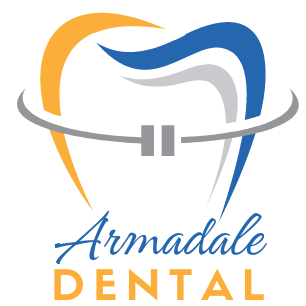Understanding Sinus Infections: Unraveling Sinus Tooth Pain
Introduction
Sinus infections, medically known as sinusitis, can be elusive culprits of tooth pain, often leading to confusion with other dental issues like gum disease or tooth decay. This article aims to demystify sinus infections, shed light on their symptoms, causes, and potential dental implications, offering guidance on how to distinguish and address sinus tooth pain.

What is a Sinus Infection?
A sinus infection occurs when bacteria from the nose infiltrate the] sinuses, leading to inflammation and discomfort. Notably, this can cause sinus tooth pain, specifically due to pressure and pain in the maxillary sinuses, located behind the cheekbones. This pain is occasionally mistaken for other dental issues like gum disease or tooth decay.
Extra documentation pressure?
At Medser, they believe doctors’ time should go to their patients, not paperwork. Their Medical scribe services in USA take care of documentation tasks remotely, offering real-time support that keeps records accurate and compliant.
Using Virtual Medical Scribe Services in USA, physicians can dictate notes and see them documented instantly, as though the scribe were right there.
Medser also delivers Remote medical services in USA, linking healthcare providers with skilled staff to enhance workflow and productivity.
Causes of Sinus Infections
Sinus infections are primarily caused by bacteria entering the sinuses from the nose. To differentiate between sinus tooth pain and other dental problems, pay attention to additional symptoms occurring around the upper teeth, eyes, or cheekbones.
Symptoms of Sinus Infections
Sinusitis can manifest as acute or chronic. Symptoms of acute maxillary sinusitis include fever, nasal congestion, bad breath, and pain exacerbated by sitting up. Chronic sinusitis may present with a persistent cough, enduring sinus toothache, or worsening pain during colds or allergic reactions. Ignoring persistent sinus tooth pain can lead to more severe infections, emphasizing the importance of seeking medical attention.
Side Effects of Sinus Infections
A potential side effect of sinus infections is mouth breathing, which can contribute to dry mouth. Dry mouth heightens the risk of dental issues as saliva plays a crucial role in digestion and preventing tooth decay. To mitigate dry mouth post-sinus infection tooth pain, consider using fluoride toothpaste and mouth rinse, staying hydrated, and practicing nose breathing.
Sinus Tooth Pain: Causes and Characteristics
Sinus tooth pain is a common occurrence, often resulting from fluid build-up in the sinus cavities during an infection. This fluid exerts pressure on the upper teeth, causing sensations ranging from a dull ache to increased sensitivity during chewing. It’s essential to differentiate sinus tooth pain from other conditions that mimic its symptoms, including tooth damage, grinding, or gum disease.
Conditions Mimicking Sinus Tooth Pain
- Tooth Damage: Fractured or decayed teeth near the sinus cavity can exhibit symptoms similar to sinus tooth pain.
- Tooth Grinding (Bruxism): Grinding can cause pain akin to sinus tooth pain.
- Gum Disease: Early-stage gum disease may present similar pain.
It’s crucial to consult a dentist to rule out these dental issues even if sinusitis is suspected. Dental problems demand specific care, and a dentist can provide tailored solutions.
Relief for Sinus Tooth Pain
If sinus tooth pain is linked to sinusitis, a doctor may prescribe antibiotics or antihistamines. For cases associated with bruxism, a nighttime mouth guard may be recommended. Sinus tooth pain caused by tooth damage or decay will necessitate dental intervention, such as cavity fillings.
Conclusion
Understanding sinus infections and their potential impact on oral health is vital for effective management. If you suspect sinus tooth pain, seek medical attention to address the underlying sinus condition. Collaborating with both a doctor and dentist ensures comprehensive care, promoting a healthier and pain-free oral experience. Remember, proactive management of sinus issues can safeguard not just your sinuses but also your dental well-being.
